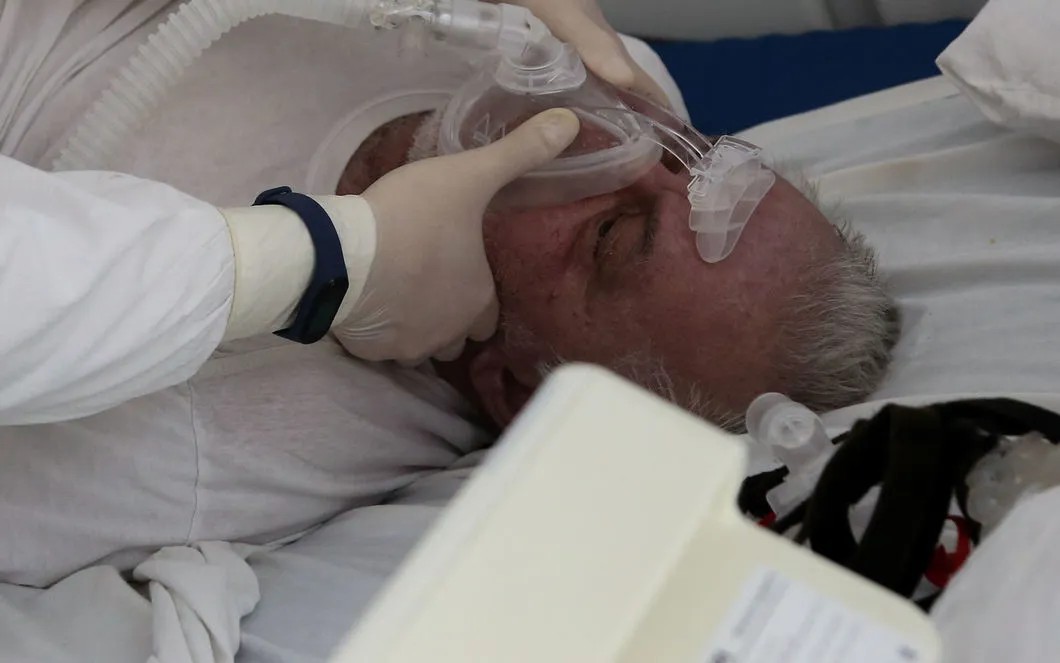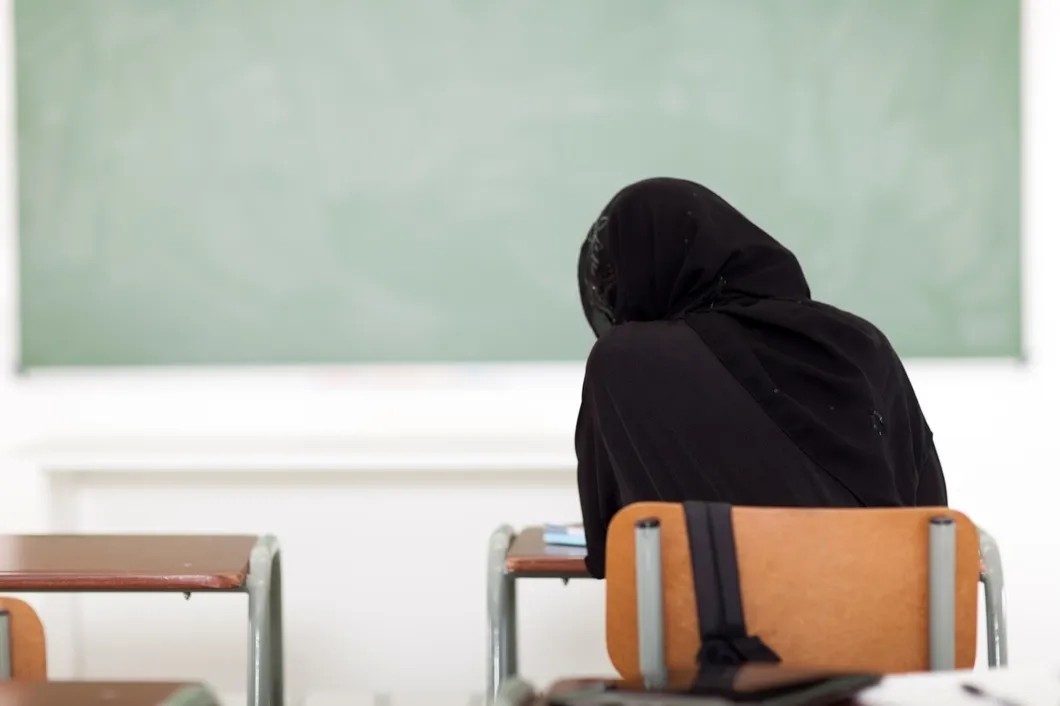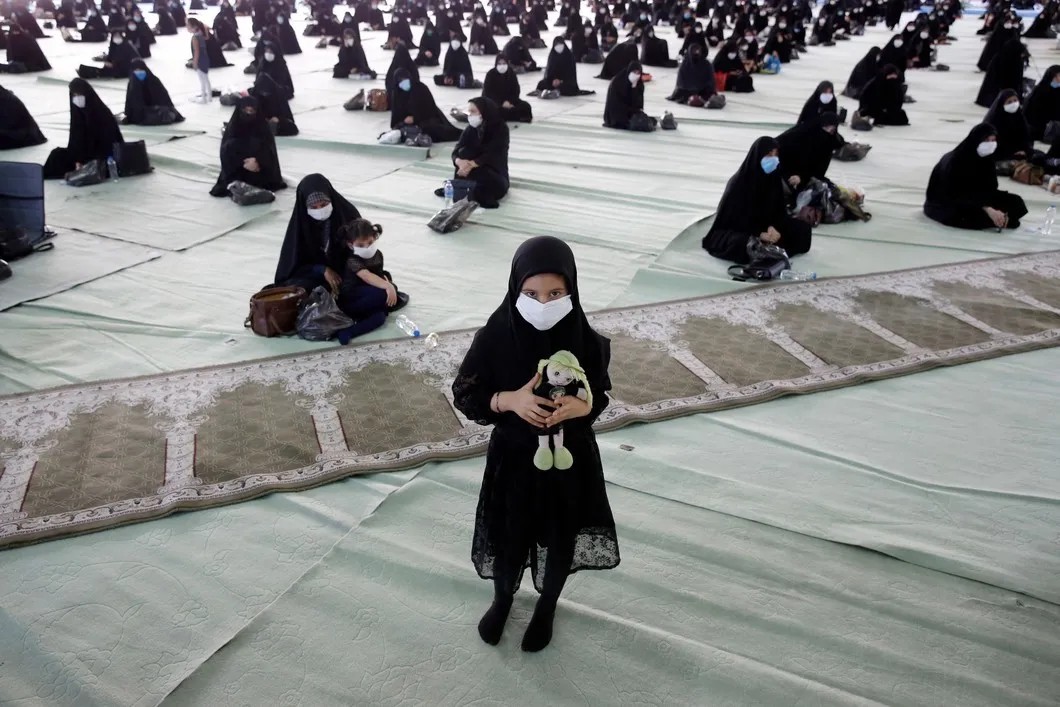This Week’s Highlights
Our data journalism unit ‘unlocked’ grim pandemic modeling buried inside openly published government documents: Covid-19 will be ravaging Russia at least until 2022, infect millions and leave tens of thousands dead; Russia remains one of the few countries in the world where female genital mutilation remains legal, and, moreover, grows in popularity — this week we bring to light the stories of child victims; plus, in another dispacth highlighting the country’s environmental dgeradation, we travel to one of Russia’s dirtiest cities where the coal industry keeps expanding as if it is 19th century again.
Want to get the full story? Click the links below for full-length articles in Russian.
Future of Covid-19, Modeled
President Putin was forced to admit a grim Covid-19 reality this week. There's no point talking about the 'second wave' of Russia's pandemic since the country hasn't overcome the first one, he said. But the number of cases continues to rise, exceeding the latest peak in May. Official data remainsheavily doctored, while the Russian healthcare system is already stretched to the limit. But the worst is still ahead, and the government knows it. This week we got our hands on a model of future coronavirus spread compiled by the state-run Center for Monitoring Biological Risks. It says the next peak won't occur until December 2020, and there could be a third wave in the Spring.
'UNLOCKING' THE NUMBERS.We had to deploy our investigative data unit to 'unlock' data buried deep down official papers, which was not meant to be available publicly. 'Reconstructed' government modeling revealed the expectations of multiple upcoming Covid-19 waves. Officials expect the number of daily new cases to jump 40% and peak around 25,000 by December. Despite the 'Russian Covid-19 vaccine' hype, the government doesn't expect the pandemic to go away earlier than 2022. Around 6 million people or 5% of the population will be infected, and 52,000 people will have died by that time.
A HIDDEN CRISIS.The real scale of the covid-19 crisis remains classified. The official statistics are doctored and challenging to analyze. Even Russian officials admit that the official data doesn't provide an accurate picture of what's happening. The state collects more information on the disease's spread than we're allowed to see, but it is in no hurry to share it. Meanwhile, there are alarming reports of hospital bed shortages and overcrowded morgues. Officials have refused to answer Novaya Gazeta's questions about why the official data aren't accurate.

PLEADING FOR HELP FROM KURGAN.To patch together the picture of the real Covid-19 impact on Russia, we have to rely on news reporting coming from regions all across the country. This week we feature two dispatches. The first is by our Ural correspondent Izolda Drobina and comes from Kurgan, one of the Ural regional centers. On October 21, local hospitals and around 112 city residents wrote an urgent appeal to Russian President Vladimir Putin. They are alarmed how badly the official Covid-19 statistics underestimate the impact of the virus on their region. 'There is no space in the hospitals, and medical staff is sorely needed,' the letter reads. The Kremlin just forwarded it back to the regional officials. Natalya Vorobyova, one of the nurses who signed the letter, was later summoned to the police.
A TRAGEDY IN ROSTOV.Our special correspondent Elena Romanova sends the second dispatch from one of the key Southern Russian cities. The arrival of the second pandemic wave in Rostov is marked by a mass death of thirteen patients in a local Covid-19 ward — they suffocated from a lack of oxygen in their ventilators. The authorities refuse to talk about it. But hospital employees confirmed to us that this was not the first incident of interrupted oxygen supply. Curiously, the hospital's chief physician happened to be on oxygen support that same day, but he survived.
'I cannot say with certainty that the patients would have all recovered, but they had a chance with oxygen,' one of the Rostov doctors told us. 'The patients were suffocating, and all we could do was talk to them,' another hospital worker said, describing the harrowing incident.
Read our full story on the modeled expectations for Covid-19 in Russia here; our overview of Russia’s faulty coronavirus data here; our report from Kurgan’s medical frontlines here and our full report on the tragedy in Rostov here.
Female Genital Mutilation in Russia, Explained
19 European countries have explicitly banned this barbaric procedure. In many others, it remains socially unacceptable. Not in Russia, though. It is still in practice in some Southern Russian regions, but human rights activists have started to fight back. This week our correspondent Zinaida Burskaya brings to light the story of a young Russian girl who became a female genital mutilation (FGM) victim. Her case might turn into a milestone precedent for those in Russia fighting the cruel tradition.
KIDS MAKE THE MAJORITY OF VICTIMS.Some private clinics in Russia perform FGM operations. However, they are few and mostly based in the Muslim-majority regions of Southern Russia. But in most cases, official medical facilities rarely perform the procedure. Instead, it is done at home with a knife, scissors, or other tools. Young girls are the most common FGM victims, and home surgery raises severe health consequences for them. It is unclear how many FGM surgeries happen in Russia every year. In 2018 local activists estimated that over 1200 kids get mutilated this way in Dagestan, the largest region of the North Caucasian Federal district, alone.
FEW WAYS TO FIGHT BACK.The Russian legislation doesn't mention FGM at all. But the country's criminal code does contain articles related to harm to a person's health and infringement on a person's sexual integrity. Russian human rights activists utilized the latter to file the country's first-ever lawsuit against FGM. It concerns a case of a little girl in a Southern Russian region of Ingushetia.

'SHE WAS CRYING AND BEGGED TO SEE HER MOTHER.' A 9-year-old girl (her name is concealed for privacy reasons) was severely injured in Ingushetia after her stepmother brought her to a clinic that performed female circumcision. The young girl was held down by three adults. She cried, screamed, and begged to be allowed to contact her mother or grandmother. A gynecologist at the clinic told her that she was getting a vaccine, and without it, she would die.
UNFIXABLE DAMAGE.After the operation, the young girl started to bleed. Her temperature rose, and an ambulance was called. Her mother said that the pediatric gynecologist who examined the girl in the hospital was horrified by what was done to the child. In addition to the physical injuries sustained due to the mutilation, the girl was later diagnosed with post-traumatic stress disorder.
Поддержите
нашу работу!
Нажимая кнопку «Стать соучастником»,
я принимаю условия и подтверждаю свое гражданство РФ
Если у вас есть вопросы, пишите [email protected] или звоните:
+7 (929) 612-03-68
ANTI-FGM ACTIVISTS HOPE FOR A LEGAL PRECEDENT.The young girl's mother went to the police. She convinced them to charge the doctor who performed the procedure with deliberately inflicting harm to a minor's health. If convicted, he faces a maximum sentence of just 4 months in jail. But the case has been in the pre-trial stage for more than a year now. Moreover, the adults who brought the girl to the surgery table and the people running the clinic face no charges.
TALKING ABOUT FGM REMAINS A TABOO.‘Few debates happen about it in the Russian North Caucasus,' says human rights lawyer Olga Gnezdilova. 'A woman's right to her sexuality is stigmatized throughout society, and we cannot keep ignoring it,' she adds. But the public outrage is bubbling. In one of the examples, the failure of the Russian ombudswoman for children to explicitly condemn the practice provoked an intense social media uproar a couple of years ago.

THERE ARE SOME PROMISING SIGNS, THOUGH. Earlier this year, the Dagestani muftiate (a local Islamic religious authority) called for a partial ban of the procedure and admitted it 'goes contrary to Islam's laws.' An anthropologist and Islamic scholar Akhmet Yarlykapov told us that FGM traditions in Southern Russia dated back to the pre-Islam times and were later incorporated by local Muslim communities as a part of their religious customs. 'Very often it is actually used to demonstrate the power of the family clan over a woman and her body," Yarlykapov adds, emphasizing that 'Koran does not prescribe FGM.'
BACKSTORY.Female genital mutilation (FGM) involves partial or full removal of the external female genitalia for non-medical reasons. The practice is a form of gendered sexual oppression and internationally recognized as a violation of human rights. World Health Organization warns that it has no health benefits, can cause severe bleeding and other health- and life-threatening complications. The procedure remains legal in Russia, and its popularity has been rising since the collapse of the Soviet Union in 1991. It is the most common in Muslim-majority regions of Southern Russia. FGM's spread is linked with overall assault on women's rights in Russia in recent years and often underreported femicide crisis in Eastern Europe.
Read our full investigation into female genital mutilation in Russia here.
Russia’s Obsession with Coal
This week our correspondent Victoria Mikisha brings you a dispatch for the Kemerovo region in Russian Siberia. It produces half of the Russian industrial waste even though the region occupies just 0.6 percent of the country's territory. Almost all of that waste comes from coal mining.
THE COAL OBSESSION HAS A TERRIBLE PRICE ON LOCALS:they inhale three times more pollutants than an average Russian citizen, battle the highest cancer rates in Siberia and die from respiratory diseases more often than anyone else in Russia. The mortality rate here tripled between 2014–2018 alone. The local air is so dirty that snow over here is always gray. Folks have to wipe coal dust from their windows every day and clean their clothes after walks. Coal dust is everywhere, so if you try to dry your laundry outside, it will turn black. Russian environmentalists warn that the country urgently needs a new energy policy or more Russians will live in an environment nightmare like the folks in Kemerovo.
WHEN IT COMES TO COAL MINING, IT IS IF TIME GOES BACKWARDS HERE. Instead of adopting more environmentally-friendly mining, over the past 20 years, the Kemerovo region has actually degenerated into more primitive techniques. Specifically, it switched primarily to open-pit coal mining, the most dangerous and dirtiest industry method. It severely degrades both the local landscape and people's health. It also causes significant and longstanding changes to local vegetation, soil, and bedrock. In Kemerovo, the pits devour villages and towns. The areas where people live remain dangerously toxic even after the coal companies leave.

RUSSIANS ARE DYING TO BOOST AN INDUSTRY THAT ISN'T EVEN VIABLE.While European countries almost stopped buying Russian coal, China, South Korea, and Japan became the country's biggest buyers. To cater to the Eastern demand, the Russian government plans to expand coal mining by 50% by 2035. But this strategy already looks seriously outdated. China pledges carbon-neutrality by 2060, and Japan is planning the transition, too. 'Russia needs a new energy policy,' warns local eco-activist Vladimir Slivyak. 'The current one is of the Soviet-type: every year we will be extracting more fossil fuel, sell more, and earn more. But this strategy won't survive long.'
BACKSTORY.The situation in Kemerovo is part of a broader problem of worsening environmental degradation in Russia. Just recently, officials struggled to contain the Arctic's largest-ever fuel spill. It happened due to a lack of oversight, and officials colluded with local oligarchs to cover up the situation. For some time now, the Kremlin has been stripping away environmental protections. This is often done tomaximize profits from natural resources and ever-expanding mining, something that the country's economy is entirely dependent on. Another contributing factor is the aggressive military expansion in the Russian Arctic as the government rushes to take over new trading routes that are opening up due to climate change.
Read our deep dive into the Kemerovo region’s industrial waste problem here.
Other Top-Stories Russia Has Been Reading
- PROTESTS CONTINUE IN BELARUS. Our most-read story of the week is a dispatch from the ongoing pro-democracy revolution in Belarus. Riot police have been facing off against large crowds around the country, firing warning shots in the air and using stun grenades against the crowds. Our Alexey Maltsev describes the evolving strategies of the protesters to outsmart violent authorities. Still mostly leaderless movement, relies on the ‘be like water’ tactics to overwhelm the dictatorship forces. ‘In Belarus the government has established the regime that bans you from standing out. You have no right for your own opinion. This is quintessentially a dictatorship. We don’t need that,’ one of the Belarusian protesters tells Maltsev.
- COVID WORSENS RUSSIA’S DEMOGRAPHIC CRISIS. Another of our top stories this week warns about long-term consequences of the pandemic on the already dwindling population numbers in Russia. Russia’s population decreased between January and August by 277.8 thousand people. It was only 52.5 thousand over the same period last year. This jump is likely due to the excess number of deaths from the virus. Fears over covid-19 are also having a negative impact on the birth rate and immigration. This might force the country to think about more relaxed migration policies to compensate for the severe workforce shortage, argues professor of economics Igor Nikolaev in this week’s op-ed. The demographic consequences of the coronavirus crisis in Russia are much broader than we realized and will manifest for a long time to come.
Thanks for reading!To keep up with Novaya Gazeta’s reporting throughout the week, you can follow us on Facebook, Twitter, Instagram, and Telegram. Our video content is available on Youtube and don’t forget to visit our website for the latest stories in Russian.
— The Novaya Gazeta Team
Поддержите
нашу работу!
Нажимая кнопку «Стать соучастником»,
я принимаю условия и подтверждаю свое гражданство РФ
Если у вас есть вопросы, пишите [email protected] или звоните:
+7 (929) 612-03-68
